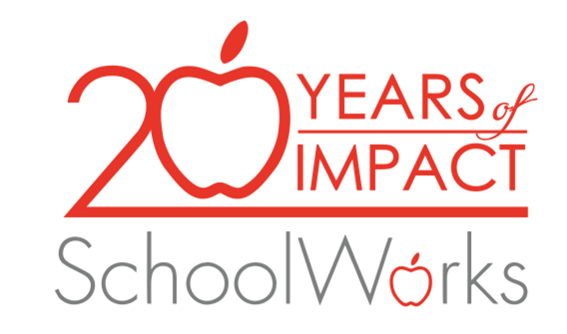SchoolWorks Contributor: Jake Schmitz
The One-to-One Conundrum
By definition, Personalized Learning (PL) is the administration of experiences, instructional approaches, and academic-support strategies that are intended to address the distinct learning needs, interests, aspirations, or cultural backgrounds of individual students. It is varied, it is student-centric, and, by its very philosophy, no two programs are alike.
But though Personalized Learning programs can take a variety of forms, schools and districts across the country often face very similar challenges when planning and implementing PL programs. By working with schools and districts across the country to assess the effectiveness of PL implementation, SchoolWorks has amassed some key insights into the common barriers to success:
- Vision and Implementation Plan – Schools often launch a PL program by asking interested teachers to choose one aspect of PL (e.g., student advocacy, technology, learner profiles) and experiment with it. While this method does expose teachers to PL ideas, there is often no larger vision for what the PL program should ultimately look like or a plan for how to bring the vision to life. A vision and implementation plan are essential elements that help ensure that the PL program is cohesive, consistent and effective. SchoolWorks’ partners at Lake County Schools in Tavares, FL provide an excellent example of clearly articulated personalized learning vision and goals.
- Change Management – Some teachers immediately see the possibility in PL and are excited to dive into implementation. Others resist PL because direct instruction feels more familiar. Families will have questions about rationale and logistics as the school shifts to a new instructional model. A thoughtful, realistic plan for change management is essential in order to ensure that all stakeholders understand and support the PL program. How might such a plan appear in action? SchoolWorks’ partners at Dallas Independent School District have created a comprehensive PL ToolBox to support district schools throughout the various stages of implementation.
- Strategic Use of Human Capital – While preparing to implement PL programs, schools often budget for equipment and materials such as kidney tables, Chromebooks, and novels on different reading levels. However, they do not always consider how to budget staff and their time. Leaders must strategically and creatively deploy staff in order to create the low student-to-teacher ratios that facilitate true PL. Summit Learning, a personalized learning program provider, requires potential partner schools to assemble a grade-level team consisting of teachers in all four core subjects (i.e., Science, English, Math, History) in a single grade (4-12) as well as the school leader/principal. According to Summit, the commitment fosters collaboration and support among teachers using a new method for the first time, and ensures that students have a consistent, cohesive learning experience.
Challenges aside, one of the consistent, evident benefits of implementing a PL program is a renewed focus on students. Students often gain choice and voice, even if in relatively basic forms such as being able to decide where to sit in the classroom. And because PL programs usually promote restorative behavior management systems, adaptation can support meaningful impacts on students’ academic and socioemotional learning.
How do you know if your school is on the right track?
If your school is implementing PL, but you are unsure about the progress of your efforts, a third-party personalized learning review can help your team determine if program goals have been met and identify priorities for program improvement. Over the past several years, SchoolWorks has conducted Personalized Learning Reviews in districts across the country, including Dallas Independent School District and Denver Public Schools. The process places a team of experienced reviewers on-site to gain a comprehensive picture of the program’s current state, and then uses findings to help the school team create a data-informed action plan for continued progress.
- First, the reviewers examine the school’s documents, including handbooks, lesson plans, and professional development plans.
- Once on site, the reviewers interview groups of teachers, students, leaders, support staff, technology staff, families, and the personalized learning advisory board if applicable. The reviewers visit classrooms across grade levels and content areas. They may also observe other relevant meetings—such as data meetings or professional development sessions—or “shadow” teachers, students, and/or leaders to gain insight into their daily work.
- Based on the evidence and data gathered, reviewers assess the PL program using the school’s framework or the SchoolWorks Personalized Learning Rubric. The SchoolWorks rubric addresses multiple indicators: Learner-Centered Student Culture, Learner-Centered Classroom Culture, School Supports for Learners, Structures and Systems to Support PL, and Learner-Centered Curriculum and Instruction.
After the assessment, the reviewers lead a prioritization and planning meeting with the school leadership team to share findings of both strengths and growth areas. Leading the school team through a facilitated action-planning process, the reviewers help the school to determine goals and strategies against at least one growth area. The experience culminates with a written report of findings, evidence, data, and the resulting action plan.
Find out more.
If you’d like to learn more about overcoming PL implementation challenges, join us at iNACOL Symposium 2018 where SchoolWorks Managing Director of Instruction Jake Schmitz and Director of Personalized Learning Kristen Watkins from Dallas ISD will co-present about Dallas’ PL program and the support SchoolWorks has provided over the past three years. We hope to see you at their session, “Perfecting One-Size-Fits-All for 157,000 Students: Accountability and Personalized Learning in Dallas Independent School District.” Or, check out our supports here.

